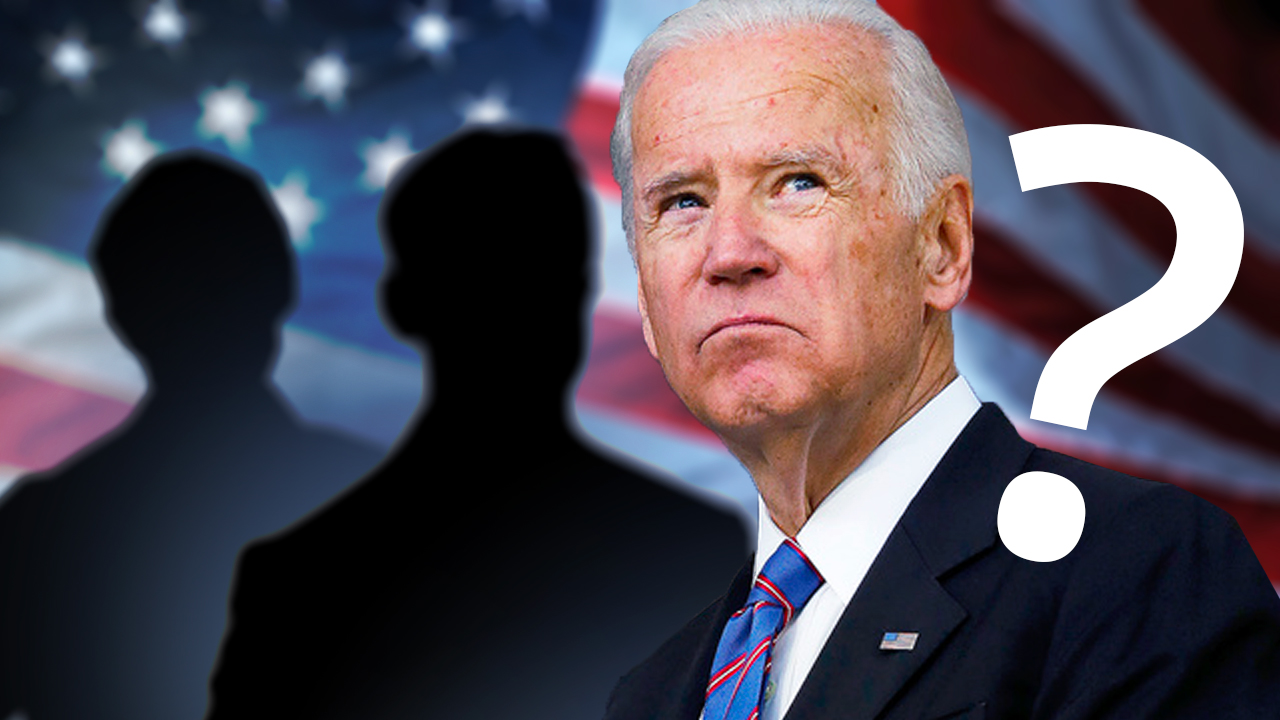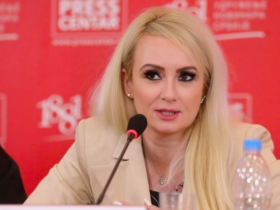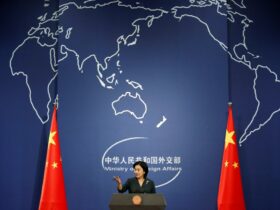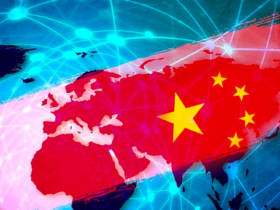On January 20, 2021, Joe Biden will be inaugurated as President of the United States. Along with him, a new team will come to the White House, mostly composed of officials from Barack Obama’s administration. UWI has already written about the major figures in the future Joe Biden administration: Antony Blinken – the future state secretary, Jake Sullivan – the future national security advisor, Avril Haines – future Director of National Intelligence, Linda Thomas-Greenfield – the future US representative to the UN and John Kerry – future special presidential envoy for climate change.
All of them held important posts under Obama. Later on the incoming CIA Director: William J. Burns was added – the former Ambassador to Russia and Jordan, Assistant Secretary of State for Near Eastern Affairs and Deputy Secretary of State in the Obama Administration.
The list of those who will soon be in charge of aspects of foreign policy after Biden assumes office is growing. Whereas department heads are usually political appointees, policy chiefs are the professionals brought in to pursue one policy or another. By observing who Biden is appointing and in what areas he is placing them, we can make some educated guesses about the features of the new president’s foreign policy orientation.
Future Czars
The term “czar” or “tsar” is used in American political language to designate a person in charge of a particular policy, region or policy area. They usually have broad authority and the final word on the issue they coordinate.
The American media has named at least three “czars” in the future Biden-Harris administration, all of them have the status of “coordinators” in the National Security Council (NSC): Brett McGurk, coordinator in the National Security Council for the Middle East and North Africa, Shanthi Kalathil, coordinator for human rights and democracy and Kurt Campbell, “one of the architects of the US strategy toward the Pacific” and future Indo-Pacific coordinator.
Middle East: support for terror
Brett McGurk, who will oversee the future US policy in the broader Middle East region, earlier served as special presidential envoy for the Global Coalition to Defeat ISIS from 2015 to 2018 and special presidential envoy for the US campaign against the Islamic State in the Obama Administration. He has argued for the comprehensive support of PKK terrorists in Syria, ostensibly to fight ISIS.
McGurk was de facto in support of using one group of terrorists against others. Under him, the US made an unprecedented effort to create formations of Islamists in Syria and support them with weapons and money. However, these weapons later fell into the hands of more radical formations and even ISIS.
In 2018, McGurk resigned over Donald Trump’s decision to withdraw troops from Syria. The official protested against what he believed to be concessions to Turkey in its fight against PKK terrorists in Syria.
During the Obama administration and under Trump, Brett McGurk became famous for his anti-Turkish statements and ties with the PKK. His return to the role of coordinator of the country’s entire Middle East policy means that not only is the US not abandoning the idea of cooperating with terrorists, but is ready to develop the “Kurdistan” project to undermine Turkey, Syria, Iraq and Iran.
This is also a signal that the US has no intention of making concessions to Ankara. By appointing an official unacceptable to Turkey, they are showing their refusal to negotiate with Turks as equals. The goal is to force Turkey to come to terms with and accept the situation, thereby inflicting a reputational defeat.
Importantly, the new US Secretary of Defense, Lloyd Austin, also has a poor reputation in terms of fighting terrorism in the Middle East. He is the former commander of CENTCOM, whose area of responsibility was the Middle East from 2013-2016. Under him, ISIS took Mosul. Under him $500 million was allocated to train Syrian “rebels”. As a result, only 60 fighters were trained, who immediately dispersed.
CENTCOM under Austin was accused of fudging intelligence reports on ISIS in order to underestimate the real threat from the organization and to overestimate the success of the United States in combating it.
The Pacific: containing China
Kurt Campbell, who will become the “czar” of the US’ Indo-Pacific strategy, is known as the architect of the “Pivot to Asia” strategy during the Obama Administration.
Campbell advocates containing China, relying on a network of partners in the region. At the same time, he is not against cooperation with the PRC where it is beneficial to the US. One result of this strategy was the escalation of the US-China standoff in the South China Sea.
China, judging by Foreign Minister Wang Yi’s latest tour of Myanmar, Brunei, Indonesia and the Philippines, is preparing for an escalation in this area and US attempts to draw countries in the region into anti-China projects.
The Japanese newspaper Nikkei notes that “Campbell himself has called for spreading American forces out across Southeast Asia and the Indian Ocean, as opposed to the current heavy tilt toward Japan, South Korea and Guam”.
Thus, it is to be expected that the American-Chinese geopolitical confrontation will continue, though its geographic format may change with greater American interest in Southeast Asia and not in East Asia.
Kurt Campbell noted in a 2018 Foreign Affairs article that US attempts to “change” China by dragging it into the structures of liberal globalization have failed: “The starting point for a better approach is a new degree of humility about the United States’ ability to change China. Neither seeking to isolate and weaken it nor trying to transform it for the better should be the lodestar of US strategy in Asia. Washington should instead focus more on its own power and behavior, and the power and behavior of its allies and partners. Basing policy on a more realistic set of assumptions about China would better advance US interests and put the bilateral relationship on a more sustainable footing”.
Eurasia and Russia: wrestling with Russian-Chinese rapprochement
Andrea Kendall-Taylor has been named as Senior Director for Russia and Central Asia in the future NSC. She formerly worked as “Deputy National Intelligence Officer for Russia and Eurasia at the National Intelligence Council in the Office of the Director of National Intelligence and a senior analyst at the Central Intelligence Agency.”
Kendall-Taylor was also a Senior Fellow and Director of the Transatlantic Security Program at the Center for a New American Security.
Thus, the White House will have a separate post on Russia in the NSC. Trump, in contrast, had merged Russian issues with European ones. This separation is an indication that the strategy of countering Russia will be more thoroughly elaborated in the new administration.
In 2018, Andrea Kendall-Taylor accused Russia and China of undermining democracy around the world. Hungarian Prime Minister Viktor Orban and Turkish President Recep Tayyip Erdogan have also received her criticism for allegedly copying Russia’s authoritarian political model.
To counter Russia and China, she suggested supporting and developing investigative journalism and civil society institutions, including not only in Russia and China, but also in countries that cooperate with them. In effect, this is a call for “civil society” interference in the affairs of other countries.
Andrea Kendall-Taylor, in an article with David Shullman published on January 14, argues that the cooperation of Russia and China is producing a synergistic effect. Together, the two countries pose a greater threat to the US than separately:
“Perhaps the most concerning-and least understood-aspect of the Russia-China partnership is the synergy their actions will generate. Analysts understand well the challenges that Russia and China each pose to the United States. But little thought has been given to how their actions will combine, amplifying the impact of both actors. As this report highlights, the impact of Russia-China alignment is likely to be far greater than the sum of its parts, putting US interests at risk globally.”
It is likely that the Biden administration will pay more attention to thwarting Russia-China cooperation.
Andrea Kendall-Taylor has also worked extensively in the past on projects to counter “authoritarian regimes” in the digital environment.
In addition, former Assistant Secretary of State for European and Eurasian Affairs Victoria Nuland may return to the US State Department, sources told Politico and Reuters. According to their information, she will be nominated to the post of undersecretary of state for political affairs. Nuland is known for her support of the colored revolution in Ukraine in 2014.
Europe: Atlanticism and liberal values
Dr. Amanda Sloat will be Senior director for Europe at the National Security Council. During the Obama-Biden Administration, Sloat served as Deputy Assistant Secretary for Southern Europe and Eastern Mediterranean.
Amanda Sloat is one of America’s leading young professionals on Turkey and NATO. In a 2018 edition of Foreign Affairs, she called for a tough policy on Turkey, stating “for the sake of the alliance, Erdogan must fold.”
She called for “widening the aperture of government outreach to more officials on a broader range of shared interests; using the prospect of deeper trade and investment links to encourage better governance; expanding people-to-people ties and supporting civil society; and staying true to Western values by speaking out about rule of law and human rights abuses”.
In Europe, she pays particular attention to left-liberal parties like the German Greens, believing that they can enforce “constructively” pro-American policies.
Alongside with Nicholas Burns and Victoria Nuland, Amanda Sloat contributed to report “Stronger Together: A Strategy to Revitalize Transatlantic Power” by Harvard Kennedy School (HKS) and the German Council on Foreign Relations (DGAP). The report calls for rapid revitalization of Transatlantic ties, containment of Russia and China and rolling back “authoritarian tendencies within our region, including in Hungary, Poland and Turkey, by conditioning NATO security investment funds and EU financial support”.
The report also opposes the drawdown of US forces in Europe, particularly in Germany.
Other representatives of Joe Biden’s foreign policy agree, such as Kathleen Hicks, who will be the first female deputy head of the Pentagon. She now serves as Senior Vice President and Director of the International Security Program at the Center for Strategic and International Studies. She’s a well-known advocate of Russian containment and maintaining a US military presence in Europe.
South Asia: convergence with India
Indian American Sumona Guha will be Senior Director for South Asia in the future National Security Council and is well known to Joe Biden. She was Special Advisor for national security affairs for Biden when he was president. Previously, Guha was Senior Director at the US-India Business Council (USIBC). She currently is Vice President at Albright Stonebridge Group headed by the former US Secretary of State Madeleine K. Albright.
Sumona Guha was also co-chair of the South Asia foreign policy working group on the Biden-Harris campaign, and serves on the transition’s State Department Agency Review Team. She also served as a Deputy Director for Afghanistan Affairs in the Office of the Special Representative for Afghanistan and Pakistan.
She is not known as an expert, but the choice of a former lobbyist for India means that the US will continue its policy of rapprochement with India at the expense of Pakistani-American relations.
Latin America: diplomacy as a tool
Juan Sebastian Gonzalez, a native of Colombia, was National Security Council Director for Western Hemisphere Affairs under Obama. He will serve in the same capacity during the Biden-Harris administration. Gonzalez has criticized Trump’s Cuban policies and favors reducing barriers to migration from Latin American countries to the United States. At the same time, he favors individual sanctions against Cuba and Venezuela and warns that there will be no complete return to Barack Obama-era policies.
“Diplomatic engagement is not a gift, it’s actually a tool for the United States to advance its interests,” Juan Sebastian Gonzalez states. The US may return to some kind of engagement with Cuba and Venezuela, but only to push for pro-American policies.
Spreading democracy
Shanthi Kalathil will be the third “coordinator” in the new NSC after Brett McGurk and Kurt Campbell. However, unlike them, she will focus on global rather than regional issues. Her new official position will be “Coordinator for Democracy and Human Rights”; unofficially, she is the new “democracy czar”. The Biden administration is making it clear that the promotion of “liberal democracy” will be its top priority. It is no coincidence that Biden earlier put forward the idea of holding a global Summit for Democracy to “renew the spirit and shared purpose of the nations of the Free World”.
Shanthi Kalathil is currently senior director of the International Forum for Democratic Studies at the National Endowment for Democracy. She has also worked for the US Agency for International Development (USAID) in the past. She is fluent in Mandarin and started her career in Hong Kong.
Shanthi Kalathil is an expert on democracy promotion, the influence of the Internet on democracy and China. This combination reflects the specifics of the future US policy, where Americans will try to use to the maximum their digital advantages, Hong Kong will be a favorite pressure point on China, and all this will be covered by defense of democracy.
In addition, we should expect the strengthening of USAID as a tool to promote US interests abroad. USAID will be headed by Samantha Power, the former US ambassador to the United Nations, who also names “authoritarian” China as a main adversary of the “democratic” US.
Thus, judging by the selection of key people in Biden’s foreign policy team: the National Security Council, State Department and Pentagon, the United States plans to pursue a policy based on a rigid assertion of liberal ideology. In this framework, China and Russia are the main enemies. Countries like Turkey, Hungary and Poland are the first candidates for regime change, as the US will strengthen the ideological cohesion of NATO. The undermining of unwanted regimes will be accompanied by digital control and the use of new technologies to undermine the power of foreign leaders.
Behind the talk of “healing” in US domestic politics, the new administration hides plans to crack down on dissent. In foreign policy, Democrats are claiming they will pursue a policy of multilateralism. In fact, they are pushing a new division of the world into “democracies” and “authoritarian states”. The Democrats will wage an irreconcilable struggle on the latter, using everything at their disposal.

















Leave a Reply